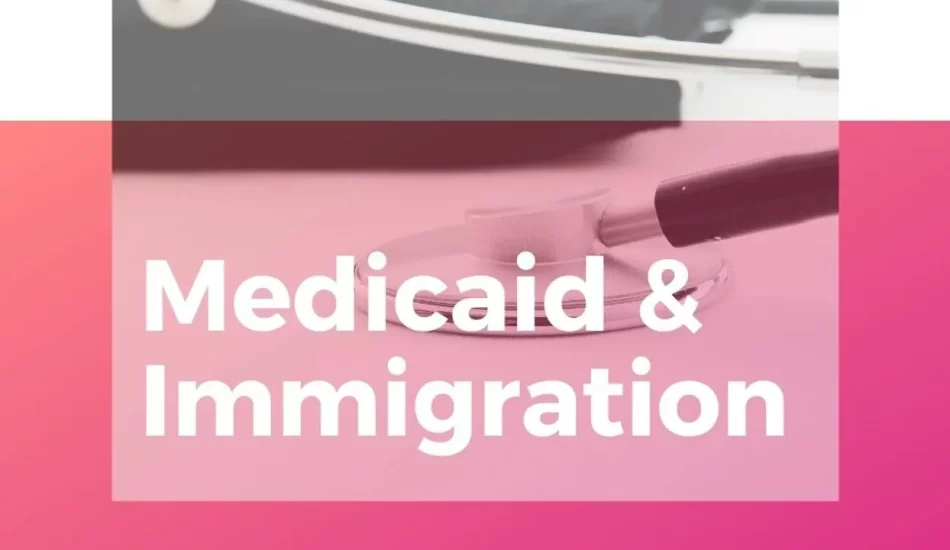How Medicaid Can Impact Your Immigration Status

Under U.S. immigration law, to be eligible for permanent residence (also called “a green card”), a person must show that they are not likely to become a “public charge,” or dependent upon government assistance. A high likelihood of becoming a public charge can make a person “inadmissible” for purposes of U.S. immigration. If U.S. Citizenship and Immigration Services (“USCIS”) determines that a person is likely to become a public charge, it can deny a green card on this basis alone. The rules regarding inadmissibility are found in the Immigration and Nationality Act (“INA”), and only apply to people who are seeking admission into the U.S. or applying for adjustment of status within the U.S. The rules about inadmissibility do not apply to all immigrants. You can read our in-depth explanation about the effects of the public charge rule here.
Historically, “public charge” was defined narrowly and only meant people who used cash assistance programs or Medicaid to pay for long-term institutional care, such as a nursing home. In August 2019, the Department of Homeland Security (“DHS”) published a final rule to expand the inadmissibility rule of the INA. The expanded public charge rule was scheduled to take effect on October 15, 2019, but was immediately challenged in various courts. The courts have blocked the new rule from taking effect while the cases are decided, and it is not currently in effect , but it is important to understand the expanded public charge rule with respect to the use of Medicaid benefits, and what it might mean for future eligibility if the rule is upheld by the courts.
The historic version of the public charge rule counted the following services as evidence of public charge:
- Cash assistance programs (sometimes called Temporary Assistance for Needy Families or TANF, Supplemental Social Security Income or SSI, state and local cash assistance or General Assistance, or “welfare”);
- Medicaid if used for long-term institutional care, such as a nursing home.
This version of the public charge rule does not apply to persons who use Medicaid to receive healthcare benefits. In general, the traditional public charge rule applied to people who were likely to rely primarily on the government for assistance and did not affect a huge number of applicants because the above-described benefits are generally only available to U.S citizens.
However, under the new policy, the public charge rule is greatly expanded to mean that almost anyone who uses Medicaid to help pay for any non-emergency medical treatment could be considered a public charge. The rule provides the following narrow exceptions:
- Children under the age of 21;
- Pregnant and postpartum women;
- Emergency Medicaid;
- Medicare;
- Formally designated refugees and asylees;
The expanded public charge rule does not apply to the Children’s Health Insurance Program (CHIP) or the Affordable Care Act marketplace subsidies, but only to Medicaid recipients.
The rule states that anyone who uses Medicaid for non-emergency health care for more than 12 months within the past 36 months immediately before filing their application may be considered a “public charge.” USCIS officers are to consider “heavily weighted negative factors,” which may be offset by “heavily weighted positive factors.” The use of more than 12 months of public benefits in the aggregate 36 month period prior to the filing of the application is a “heavily weighted negative factor.” This could be offset by a heavily weighted positive factor, such as having private medical insurance or a household income of 250% of the federal poverty guidelines. It is unknown how an USCIS officer might decide a case that had an equal number of heavily weighted negative and positive factors.
In addition, each benefit used counts toward the 12-month calculation. For example, if a person used Medicaid for primary health care and cash assistance during the same month, this would count as two months of use of benefits. Although it appears that the new version of the rule is intended to allow people to obtain short-term assistance, it also states that USCIS officers may consider any past use public benefits, including Medicaid. It is unknown whether and how officers will consider the use of benefits prior to the 36-month period immediately before the application was filed.
Unfortunately, if a person uses Medicaid to pay for primary or preventative health care, to manage a chronic condition such as diabetes, or even for cancer treatment, these uses of Medicaid could make them inadmissible for immigration purposes. Given the uncertainty about the enactment of this final rule, it would be safest for a person who intends to apply for adjustment of status in the future (or who has an application pending), to pay out-of-pocket for preventative and non-emergency healthcare services, if at all possible. While this undoubtedly places many in a difficult position of having to choose between accessing needed healthcare and admissibility for purposes of immigration, it is best to be cautious since we do not know how and when the final rule may take effect. The good news is that use of Medicaid in an emergency will not be used against an applicant for purposes of the public charge rule, so don’t hesitate to use Medicaid in an emergency situation, or if you are an expectant mother. Applicants also do not need to worry about using Medicaid for children under the age of 21. If you used Medicaid benefits in the past 36 months, you should explore the possibility of obtaining private health insurance that could count as a “heavily weighted positive factor” to potentially cancel out the negative effect of the past use of Medicaid.
